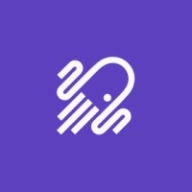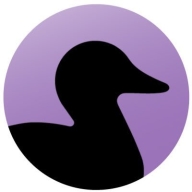

Acunetix and Coverity Static are significant players in the security testing space. Coverity Static has the advantage due to its advanced features and deeper code analysis, which can justify its higher price, though Acunetix offers a more user-centric experience.
Features: Acunetix provides Interactive Application Security Testing, a centralized dashboard, and seamless integration with other tools, enhancing its user interface and accessibility. Coverity Static is strong in code quality analysis, detailed security insights, and early vulnerability detection features.
Room for Improvement: Acunetix could reduce false positives, improve pricing flexibility, and enhance manual replication of vulnerabilities. Coverity Static users seek better integration with modern environments, lower false positives, and dynamic scanning features.
Ease of Deployment and Customer Service: Acunetix offers both cloud and on-premises deployment options with effective, though not consistently fast, customer support. Coverity Static, mostly on-premises, faces some complexity in deployment, relying on ticket submissions for support, making it less immediate.
Pricing and ROI: Acunetix's price increase now aligns more with market levels, yet its scanning capabilities maintain its value. Coverity Static is pricier, focused on user count rather than code volume, impacting cost-effectiveness. Both show ROI through vulnerability mitigation, with Acunetix favored by smaller firms and Coverity Static by larger enterprises due to substantial code analysis.
| Product | Market Share (%) |
|---|---|
| Coverity Static | 4.2% |
| Acunetix | 2.7% |
| Other | 93.1% |

| Company Size | Count |
|---|---|
| Small Business | 15 |
| Midsize Enterprise | 7 |
| Large Enterprise | 17 |
| Company Size | Count |
|---|---|
| Small Business | 8 |
| Midsize Enterprise | 6 |
| Large Enterprise | 31 |
Acunetix Web Vulnerability Scanner is an automated web application security testing tool that audits your web applications by checking for vulnerabilities like SQL Injection, Cross site scripting, and other exploitable vulnerabilities.
Coverity gives you the speed, ease of use, accuracy, industry standards compliance, and scalability that you need to develop high-quality, secure applications. Coverity identifies critical software quality defects and security vulnerabilities in code as it’s written, early in the development process, when it’s least costly and easiest to fix. With the Code Sight integrated development environment (IDE) plugin, developers get accurate analysis in seconds in their IDE as they code. Precise actionable remediation advice and context-specific eLearning help your developers understand how to fix their prioritized issues quickly, without having to become security experts.
Coverity seamlessly integrates automated security testing into your CI/CD pipelines and supports your existing development tools and workflows. Choose where and how to do your development: on-premises or in the cloud with the Polaris Software Integrity Platform (SaaS), a highly scalable, cloud-based application security platform. Coverity supports more than 20 languages and 200 frameworks and templates.
We monitor all Static Application Security Testing (SAST) reviews to prevent fraudulent reviews and keep review quality high. We do not post reviews by company employees or direct competitors. We validate each review for authenticity via cross-reference with LinkedIn, and personal follow-up with the reviewer when necessary.